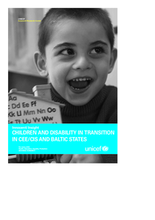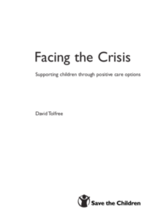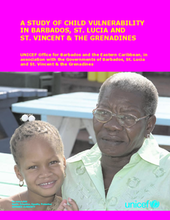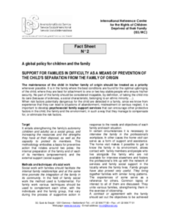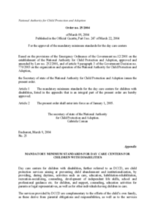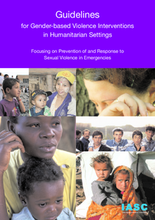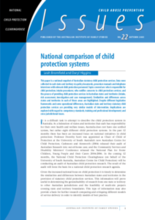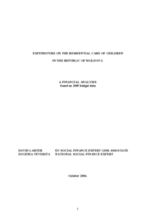Displaying 1681 - 1690 of 1796
Report presents and analyzes new research and data around children with disabilities in the region, the effects of institutional care, and the need for family support services.
Provides a brief overview of the main issues relating to out-of-home care of children. It emphasizes the need for practice and policy responses that reinforce family- and community-based care and support options.
The TransMONEE statistical tables display indicators of human welfare in the 27 countries of CEE/CIS and Baltic States. Population, natality, maternal and child mortality, health, education, child protection and economics serve as the key indicators.
This paper examines childcare policy in Mozambique. It finds that vulnerability increases when orphans are placed in resource-poor kinship care arrangements.
Country-based analysis of child vulnerability in Barbados, St. Lucia, and St. Vincent & the Grenadines. Includes statistical and demographic data on vulnerable populations. Identifies specific barriers to meeting regional needs in child protection.
Brief summary of the importance of social work in preventing family separation, including increasing empowerment, social support and self-assessment processes.
Outlines minimum standards for the operation of a day care center for children with disabilities in Romania.
Comprehensive guidelines for dealing with the planning, establishment, and coordination of multisectoral interventions to prevent and respond to sexual and gender-based violence.
This paper is a national snapshot of Australian statutory child protection services.
Reports on the financial costs of residential care for children in the Republic of Moldova. Highlights significant financial inefficiencies and advocates for closure of residential institutions.

